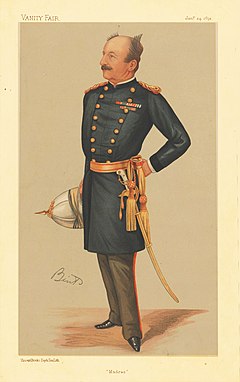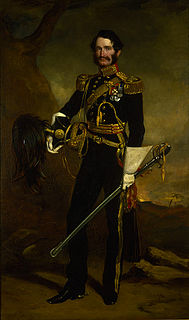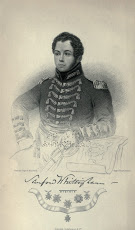 W
WLieutenant General Sir Charles George Arbuthnot was a British Army officer. He served in the Royal Artillery in the Crimean War and rose to become a senior officer in British India.
 W
WField Marshal Sir Neville Bowles Chamberlain was a distinguished British military officer in British India. He served in the Bengal Army and saw action in the First Anglo-Afghan War, Gwalior Campaign, Second Anglo-Sikh War, Indian Rebellion and Second Anglo-Afghan War. He later became Commander-in-chief of the Madras Army.
 W
WLieutenant General The Honourable Sir James Charlemagne Dormer was a British Army officer.
 W
WGeneral Sir James Hope Grant, GCB was a British Army officer. He served in the First Opium War, First Anglo-Sikh War, Indian Mutiny of 1857, and Second Opium War.
 W
WField Marshal Sir Frederick Paul Haines was a British Army officer. He fought in the First Anglo-Sikh War, in the Second Anglo-Sikh War and then in the Crimean War: during the latter conflict at the Battle of Inkerman, he held an important barrier on the post road guarding the approach to the 2nd Division camp for six hours. He served in India during the Indian Rebellion before becoming Commanding Officer of the 8th Regiment of Foot in the United Kingdom and then Commander of a Brigade in Ireland. He went on to be General Officer Commanding the Mysore Division of the Madras Army and then Quartermaster-General to the Forces in the United Kingdom. He returned to India to become Commander-in-Chief of the Madras Army in May 1871 and then Commander-in-Chief, India in April 1876: he commanded the forces in India during the Second Anglo-Afghan War and successfully argued for a large force being made available before mobilisation occurred, but once the war started the Governor-General of India, Lord Lytton, was inclined to by-pass Haines and deal direct with commanders in the field, causing friction between the two men.
 W
WGeneral William Anson McCleverty was a British soldier who served as the Commander-in-chief of the Madras Army from 1867 to 1871.
 W
WField Marshal Frederick Sleigh Roberts, 1st Earl Roberts,, was a British Victorian era general who became one of the most successful British military commanders of his time. Born in India to an Anglo-Irish family, Roberts joined the East India Company Army and served as a young officer in the Indian Rebellion during which he was awarded the Victoria Cross for gallantry. He was then transferred to the British Army and fought in the Expedition to Abyssinia and the Second Anglo-Afghan War, in which his exploits earned him widespread fame. Roberts would go on to serve as the Commander-in-Chief, India before leading British Forces for a year during the Second Boer War. He also became the last Commander-in-Chief of the Forces before the post was abolished in 1904.
 W
WLieutenant General Sir Samuel Ford Whittingham, whose Christian names were contracted by himself and his friends into "Samford", was a British and Spanish army officer during the Napoleonic Wars. Following the conflict he served in the British Army predominately in India.